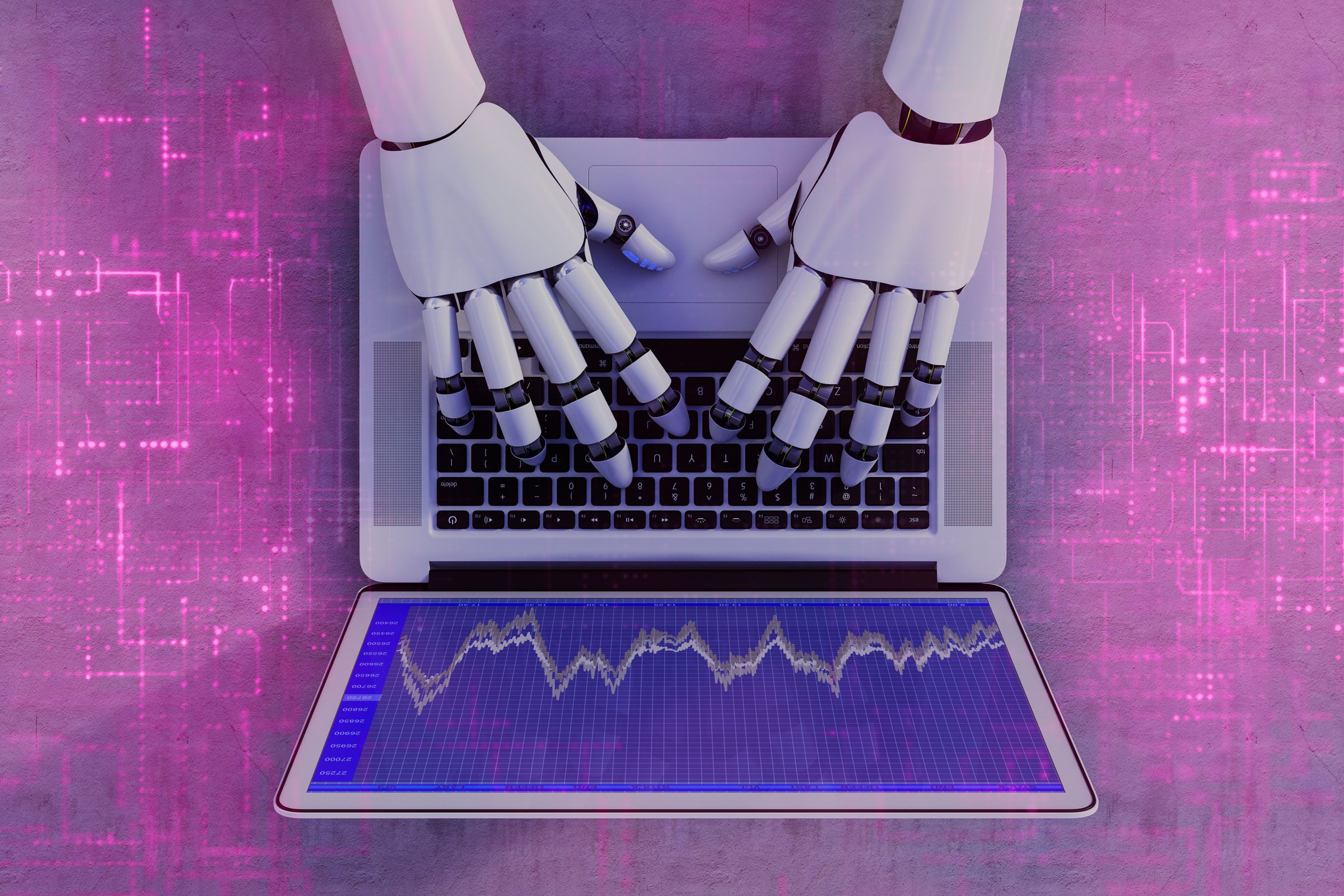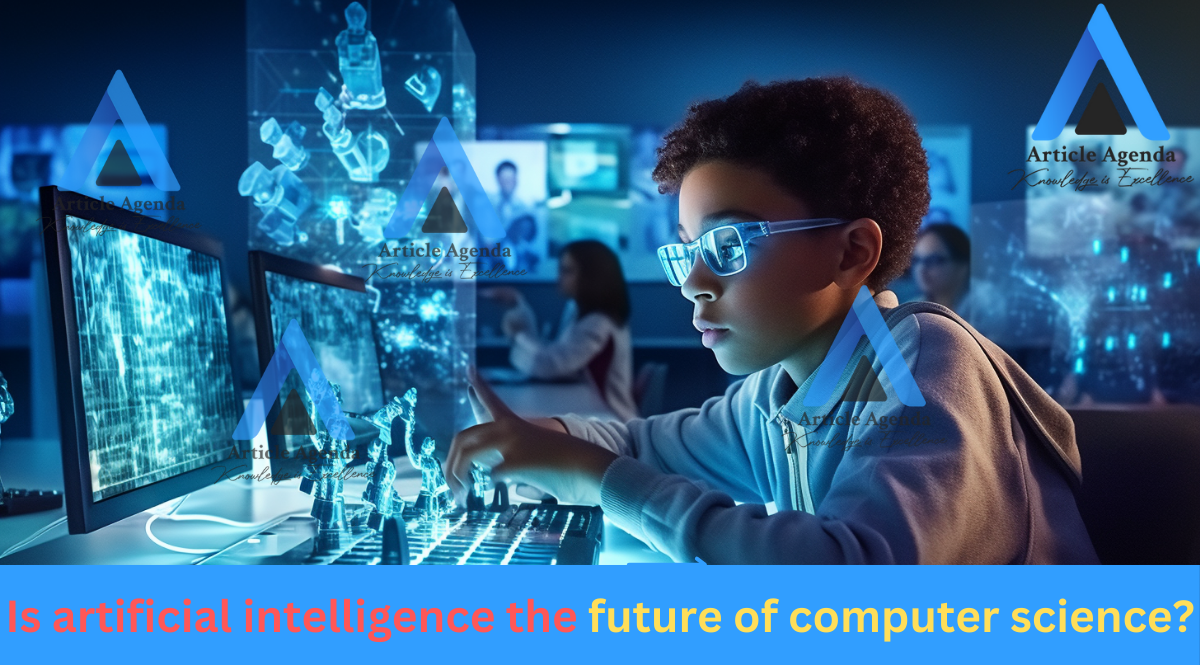Artificial intelligence (AI) has undoubtedly become one of the most fascinating and rapidly advancing fields in computer science. This revolutionary technology could transform various industries and reshape our lives and work. In this article, we will explore artificial intelligence’s history, applications, benefits, and potential drawbacks. We will also delve into its role in computer science, current advancements, challenges, ethical considerations, and the future of AI in this field. Additionally, we will discuss the exciting career opportunities that await those interested in pursuing a path in AI.
Introduction to AI
Artificial intelligence refers to developing intelligent machines that can perform tasks that typically require human intelligence. These tasks include learning, reasoning, problem-solving, perception, and language understanding. AI technology aims to create systems that can analyze vast amounts of data, make decisions, and adapt to new situations without human intervention. The concept of AI dates back to ancient times, but it was in the 1950s that the term was coined, and the field began to flourish.
Table of Contents
- Introduction to AI
- The history and evolution of artificial intelligence
- Applications of artificial intelligence in various industries
- Benefits and potential drawbacks of artificial intelligence
- The role of artificial intelligence in computer science
- Current advancements and breakthroughs in artificial intelligence
- Challenges and ethical considerations in the development of artificial intelligence
- The future of artificial intelligence in computer science
- Careers in artificial intelligence
- Conclusion
The history and evolution of artificial intelligence
The study of AI can be traced back to the 1940s, with the work of computer scientists like Alan Turing and Norbert Wiener. Turing’s famous paper on computing machinery and intelligence laid the foundation for the field by proposing the concept of a “universal machine” capable of imitating any other machine. In the following decades, researchers made significant breakthroughs in AI, such as developing expert systems and introducing machine learning algorithms. However, progress was hindered by limited computing power and the complexity of simulating human intelligence.

Applications of artificial intelligence in various industries
Artificial intelligence has applications in various industries, revolutionizing healthcare, finance, transportation, and manufacturing sectors. In healthcare, AI analyzes medical images, diagnoses diseases, and assists in surgical procedures. In finance, AI algorithms detect fraudulent activities, predict market trends, and automate trading processes. Self-driving cars powered by AI are transforming the transportation industry, offering safer and more efficient modes of travel. In manufacturing, AI-powered robots are streamlining production lines and improving productivity.
Read More : The Future Of ECommerce: How AI Is Redefining Personalization In Online Shopping
Benefits and potential drawbacks of artificial intelligence
The rapid development of AI brings with it numerous benefits. AI technology can enhance efficiency, accuracy, and speed in various tasks. It can automate repetitive and mundane tasks, freeing human resources for more complex and creative endeavors. AI systems can analyze vast amounts of data and derive insights that would be impossible for humans to process manually. However, there are also potential drawbacks and challenges associated with AI. Concerns regarding job displacement, privacy, security, and ethical implications have been raised. It is crucial to balance the benefits of AI and the potential risks it poses.
The role of artificial intelligence in computer science
Artificial intelligence plays a pivotal role in computer science, serving as a driving force for innovation and advancement in the field. AI techniques and algorithms enable computers to perform complex computations, learn from data, and make intelligent decisions. From natural language processing and computer vision to machine learning and robotics, AI has numerous applications within computer science. It has enabled the development of intelligent systems that can understand, interact, and learn from humans. The integration of AI and computer science has the potential to unlock new possibilities and push the boundaries of technology even further.
Current advancements and breakthroughs in artificial intelligence
The field of artificial intelligence is witnessing unprecedented advancements and breakthroughs. Machine learning, a subfield of AI, has made tremendous progress in recent years. Deep learning, a subset of machine learning, has revolutionized areas such as image and speech recognition. Developing neural networks and algorithms has enabled machines to acquire knowledge and improve their performance through experience. AI-powered virtual assistants, such as Siri and Alexa, have become commonplace, demonstrating the potential of AI in our day-to-day lives. Researchers are continuously pushing the boundaries of AI, exploring new techniques and applications.
Challenges and ethical considerations in the development of artificial intelligence
As AI continues to evolve, significant challenges and ethical considerations need to be addressed. One main challenge is ensuring AI systems’ transparency and interpretability. As AI becomes more complex, it becomes increasingly difficult to understand how decisions are made. This lack of transparency raises concerns regarding bias, accountability, and the potential for AI systems to reinforce existing prejudices. Additionally, ethical considerations surround the use of AI in privacy, surveillance, and autonomous weapons. Establishing ethical guidelines and regulations is crucial to ensure the responsible development and deployment of AI technologies.
The future of artificial intelligence in computer science
The future of artificial intelligence in computer science is undeniably promising. AI is expected to play a crucial role in shaping the future of technology and our society. Advancements in AI will likely lead to the development of more intelligent and efficient systems, with applications in areas such as healthcare, finance, education, and cybersecurity. AI will continue to augment human capabilities, enabling us to tackle complex problems and make more informed decisions. However, it is essential to approach the future of AI with caution and address the challenges and ethical considerations associated with its development.
Careers in artificial intelligence
The rapid growth of AI has created a demand for skilled professionals in the field. Careers in artificial intelligence span a wide range of roles, including AI researchers, data scientists, machine learning engineers, and AI consultants. These professionals are responsible for developing and implementing AI systems, designing algorithms, and analyzing data. Pursuing a career in artificial intelligence offers exciting opportunities for innovation, research, and problem-solving. As AI advances, the demand for AI professionals is expected to grow, making it an excellent field for individuals passionate about technology and its potential to reshape the world.
Conclusion
Artificial intelligence has emerged as a transformative technology with the potential to revolutionize various industries and reshape the future of computer science. The history and evolution of AI, its applications, benefits, and potential drawbacks highlight the significance of this field. As AI advances, addressing challenges and ethical considerations is crucial to ensure responsible development and deployment. The future of AI in computer science holds great promise, offering opportunities for innovation, research, and exciting careers. Embracing and harnessing the power of AI will enable us to unlock new possibilities and shape a better future for humanity.
Latest Post:
-
Smart Home Appliances in the UAE: Revolutionizing Modern Living
The UAE has long been recognized as a hub for innovation and technological advancement, and the adoption of smart home appliances is no exception. As the nation embraces the concept of smart homes, residents are experiencing a transformation in their daily lives, characterized by increased convenience, efficiency, and sustainability. This article explores how smart home…
-
(Artificial Intelligence) AI and ML (Machine Learning) : Transforming the Future
Artificial Intelligence (AI) and Machine Learning (ML) are two of the most transformative technologies of our time. They are reshaping industries, driving innovation, and opening up new possibilities in ways previously unimaginable. This article explores the fundamentals of AI and ML, their applications, and their profound impact on various sectors. Understanding Artificial Intelligence (AI) What…
-
Digital Marketing Services: Transforming Your Business in the Digital Age
In today’s digital-first world, businesses must leverage digital marketing services to remain competitive, attract customers, and drive growth. Digital marketing encompasses a broad range of tactics and strategies aimed at promoting products or services through digital channels. This article delves into the various types of digital marketing services available, their benefits, and how businesses can…






As I website owner I conceive the content here is very superb, thankyou for your efforts.
You made some decent factors there. I regarded on the internet for the problem and found most people will go together with together with your website.
I gotta bookmark this internet site it seems handy very useful
Thanks for another informative web site. Where else could I get that kind of info written in such an ideal way? I have a project that I’m just now working on, and I have been on the look out for such information.
I was recommended this website by my cousin. I am not sure whether this post is written by him as nobody else know such detailed about my difficulty. You are incredible! Thanks!
Very interesting details you have remarked, regards for putting up. “Above all be true to yourself, and if you can not put your heart in it, take yourself out of it.” by Hardy D. Jackson.
whoah this blog is magnificent i love reading your articles. Keep up the great work! You know, a lot of people are looking around for this information, you can help them greatly.